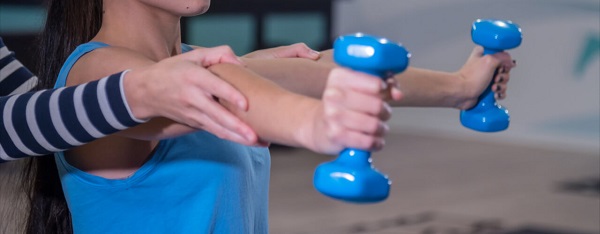The Mirror's Health , Lifestyle and Fashion

Physio management of Guillain-Barré Syndrome
For the best possible results to be observed in an individual with Guillain-Barré Syndrome, physiotherapy should commence early.
Advertisement
Many individuals who recover from the condition may require months of rehabilitation.
The physiotherapist’s initial assessment includes the present level of function of the individual which provides a basis for individualised therapy.
Therapy mainly focuses on the following;
• Muscle stretching and strengthening to prevent contractures
• Improving balance and coordination
• Prevention of pressure sores
• Gait re-education
• Regaining functional independence with everyday tasks such as the ability to sit, stand and walk independently.
• Improving posture
• Enhancing quality of life
Management in initial stages of the condition
The physiotherapist may assist the individual to enhance his respiratory function with deep breathing exercises if the intercostal muscles – the muscles between the ribs - are affected and the patient finds it difficult to breathe.
The individual may experience weakness in affected parts of the body and may find it difficult to turn in bed or sit up. He is assisted with turning himself in bed – eg lying on his back to lying on his side – and changing positions – sitting up in bed, etc.

You may also need to avoid prolonged bending at the hip and knee joints to prevent injuries
As the individual’s balance in sitting improves, he may be assisted to stand to enhance his strength and tolerance as he places weight in his legs.
There is also a need to prevent muscle contractures (shortening of muscles) and a decrease in the range of movement in his joints.
Too much movement may make the joints lax and too little may cause the joints to become stiff, hence to ensure adequate mobility, the physiotherapist takes you through specified mobilisations involving the affected limbs and appropriate positioning.
You may need your hands to be supported with armrests or pillows to prevent stretching of shoulder muscles whenever you sit upright.
Inappropriate or prolonged sitting is not advisable and can result in the development of a curved spine and pressure sores which should be avoided.
You may also need to avoid prolonged bending at the hip and knee joints to prevent injuries. Assistive devices may be required such as the use of walking frames for added support and balance to assist the individual start walking again.
Sometimes other supportive devices are also used to stabilise the ankle joint as the individual walks to prevent injuries.
Later stages of the condition
When the individual regains more control of his muscles, active exercises are increased with low resistance and more repetitions.
However, it’s important not to exercise to exhaustion because that only delays recovery of the condition.
Therapeutic exercises
Active exercises are always graded so that the individual does not get fatigued quickly. The exercise demands are increased as the muscles regain its strength but caution is always taken to avoid overexertion.
It’s advisable to focus on increasing the number of repetitions before increasing resistance in order to avoid injury to the affected muscles and joints.

When the individual regains more control of his muscles, active exercises are increased with low resistance
Hydrotherapy is a helpful aspect of therapy as it promotes mobility in the joints and muscle strengthening and also enhances respiratory function.
Exercising in water is much easier than in air and it facilitates active movement of the limbs.
The buoyancy effect on the limbs in water enhances movement and strength of the affected muscles.
The writer is a Senior Physiotherapist at the 37 Military Hospital, [email protected]




